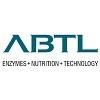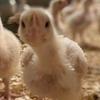Check out what is new in Poultry Industry
Find the best technical articles, forums, and videos on Poultry Industry at Engormix. Enter now and interact with the world's largest agricultural social network.
.jpg&w=3840&q=75)
Paul Bredwell (Vice President of Environmental Programs at USPOULTRY) comments on the framework progress, great reception in the industry, and how to involve more people from the value chain, in this Engormix interview....
Comments : 0
Recommendations: 0
.jpg&w=3840&q=75)
Nath Morris (USPOULTRY President) talks about strategies against Avian Influenza and other challenges in the industry, as well as a new USPOULTRY podcast and expectations for the upcoming IPPE 2025, in this Engormix interview....
Comments : 0
Recommendations: 0


Low Protein Diets Downregulate Hepatic Enzymes Responsible for Nonessential Amino Acid Synthesis in Broilers
Suggested link
.jpg&w=3840&q=75)
In this Engormix interview, Ricardo Santin (International Poultry Council President) talks about the 2024 Annual Meeting that took place in Buenos Aires, and highlights important discussions on Avian Influenza, regulations and biosecurity, among other subjects....
Comments : 0
Recommendations: 0
Presently livestock keepers require more competent exploitation of low-quality feedstuffs due to rising economic pressures. The animal's digestive system is not fully efficient. Poultry cannot digest approximately one fourth of the diet they are fed because the feed ingredients contain undegradable harmful factors that hinder the digestive process and/or the animal is devoid of the necessary enzymes needed to degrade certain complexes in the feed. Supplementation of feed with enzymes...
Comments : 1
Recommendations: 4
.jpg&w=3840&q=75)
Mr. O.P. Singh, Managing Director of ABTL, speaks about the new tagline of ABTL "Where Innovation Meets Technology", and also ABTL's commitment to research & development and its impact on product innovation...
Comments : 0
Recommendations: 2
Introduction Broiler chickens require favourable rearing conditions to maximise their genetic potential for growth. Significant deviations from optimum rearing conditions can compromise feed utilization, growth performance, and bird welfare [1]. Stocking density is one critical rearing factor that has serious implications on the economic and social sustainability of the poultry industry. Globally, the accepted industry standard is to achieve between 30 and 38 kg bodyweight per...
Comments : 0
Recommendations: 0
.jpg&w=3840&q=75)

Mycotoxin detection: VICAM builds a stronger and more sustainable future for food
Suggested link
.jpg&w=3840&q=75)
Dr. Anne-Sophie Valable (Product Manager at NOR-FEED) explains how a dry grape extract can impact a bird’s health, during this Engormix interview....
Comments : 0
Recommendations: 1
INTRODUCTION Natural medicinal products originating from herbs and spices have been used as feed additives for poultry (Guo et al., 2004). Compared with synthetic antibiotics or inorganic chemicals, these plant-derived products have proven to be natural, less toxic, residue-free, and are thought to be ideal feed additives in feeds for animal production (Wang et al., 1998). Any attempt to improve poultry production and increase its efficiency, therefore, needs to focus on the...
Comments : 0
Recommendations: 0


Pullets to Layers – Ensuring a Smooth Transition in Cage-Free Systems
Suggested link
Introduction It is widely appreciated that a variety of new technologies and human behavioral change will be required to feed an estimated population of 10 billion people by 2050 with environmentally sustainable production. It is also estimated that about one third (in weight) of the world’s food is lost or wasted annually. In 2021 the poultry industry supplied some 286 eggs per capita to consumers in the US market alone [1]. Remarkably, this has been achieved with an...
Comments : 0
Recommendations: 1
Introduction Heat stress (HS) is one of the most challenging environmental stressors despite the modern climate control equipment in broiler chickens’ houses. Broiler flocks may be seasonally exposed to HS that varies in intensity according to the relative humidity of the region [1]. Multiple studies have identified the various adverse effects of acute or chronic HS on chickens, such as a severe reduction in feed intake and growth [2–4], systemic alkalosis [5],...
Comments : 0
Recommendations: 1
Introduction Locomotory activity is strongly associated with broiler chicken welfare; many behavioral patterns that depend on locomotion, such as exploration, seeking food, water, shelter, and escaping predators, are negatively affected by the poor walking ability in fast-growing broiler chickens [1]. Rapid muscle growth and exacerbated development of the Pectoralis major muscle in fast-growing broiler chickens change the chickens’ center of gravity, altering the...
Comments : 0
Recommendations: 1
Introduction The emergence of antimicrobial resistance (AMR) in enteric bacteria of humans and animals is a global health threat that has decreased treatment efficacy and increased the cost of infections with antimicrobial-resistant bacteria [1, 2]. It is projected that by 2050 an estimated 10 million AMR-related infections will occur worldwide [3]. Surveillance systems play a critical role in the mitigation and containment of AMR by monitoring antimicrobial use (AMU) and...
Comments : 0
Recommendations: 0
Introduction Inert digestibility index markers are the anchor of many feeding trials designed to analyse nutrient utilisation and amino acid digestibility along the gastrointestinal tract of animals. Marker use is widely accepted as a method less laborious than total tract retention. Additionally, it enables the determination of digestibility along intestinal sections in ruminant and non-ruminant animals [1]. Digestibility markers, chromium dioxide, CrO 2 , or chromic...
Comments : 0
Recommendations: 2
Introduction Food safety is a central concern in the poultry industry, with pathogens such as Salmonella causing outbreaks associated with meat and eggs [1]. Nearly 1 in 25 packages of chicken products at the average grocery store are contaminated with Salmonella, and Salmonella causes 1.35 million cases of infection every year in the United States (US) [1]. A multi-state Salmonella Enteritidis outbreak in 2021 connected to not ready-to-eat (RTE) products has refocused producer...
Comments : 0
Recommendations: 1
.jpg&w=3840&q=75)

(Mandarin) Strengthening Pellets for Better Feed Performance
Suggested link
Spring has come to stay for a few months, everything is getting greener, and the environment is recovering from the harsh cold, but as optimistic as we are, we find spring to be a great moment for raising awareness of poultry’s most common diseases. Want to know some of them? 1. Coccidiosis Represented in poultry...
Comments : 0
Recommendations: 2
.jpg&w=3840&q=75)
Dr. Fernanda Castro, Technical Service Manager and Global Sustainability Coordination inoSust® Program at Evonik Animal Nutrition, describes how inoSust® empowers sustainability with science-based solutions
...
Comments : 1
Recommendations: 0
.jpg&w=3840&q=75)
Dr. Leonie Jacobs (Virginia Tech / Poultry Extension Collaborative) explains how poultry welfare has gained relevance and created awareness in the industry, and comments on some interesting projects, during this Engormix interview....
Comments : 1
Recommendations: 0
.jpg&w=3840&q=75)
Dr. Leonie Jacobs (Virginia Tech / Poultry Extension Collaborative) talks about PEC goals, publications, and initiatives (including courses and an upcoming symposium) during this Engormix interview....
Comments : 1
Recommendations: 1


Low Protein Diets Downregulate Hepatic Enzymes Responsible for Nonessential Amino Acid Synthesis in Broilers
Suggested link
.jpg&w=3840&q=75)
Dr. Leonie Jacobs (Virginia Tech / Poultry Extension Collaborative) offers insights on poultry welfare and its potential for the future of production systems -and the industry as a whole-, during this Engormix interview....
Comments : 1
Recommendations: 1
In the realm of food safety, mycotoxins present a significant challenge to manufacturers, processors, and regulatory bodies alike. These toxic compounds, produced by certain fungi under specific environmental conditions, can contaminate various food and feed products, posing serious health risks to consumers and...
Comments : 0
Recommendations: 2

































